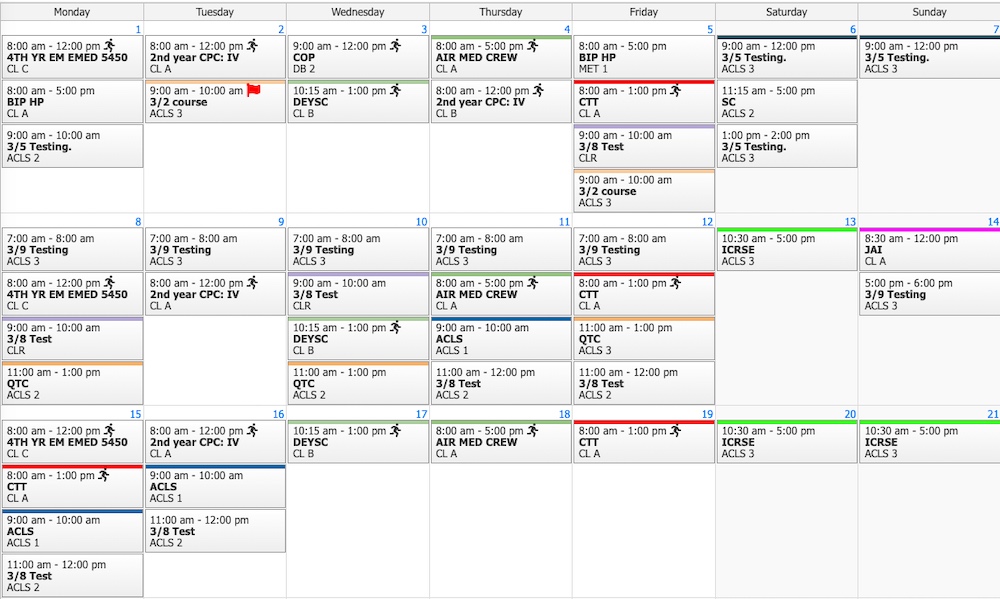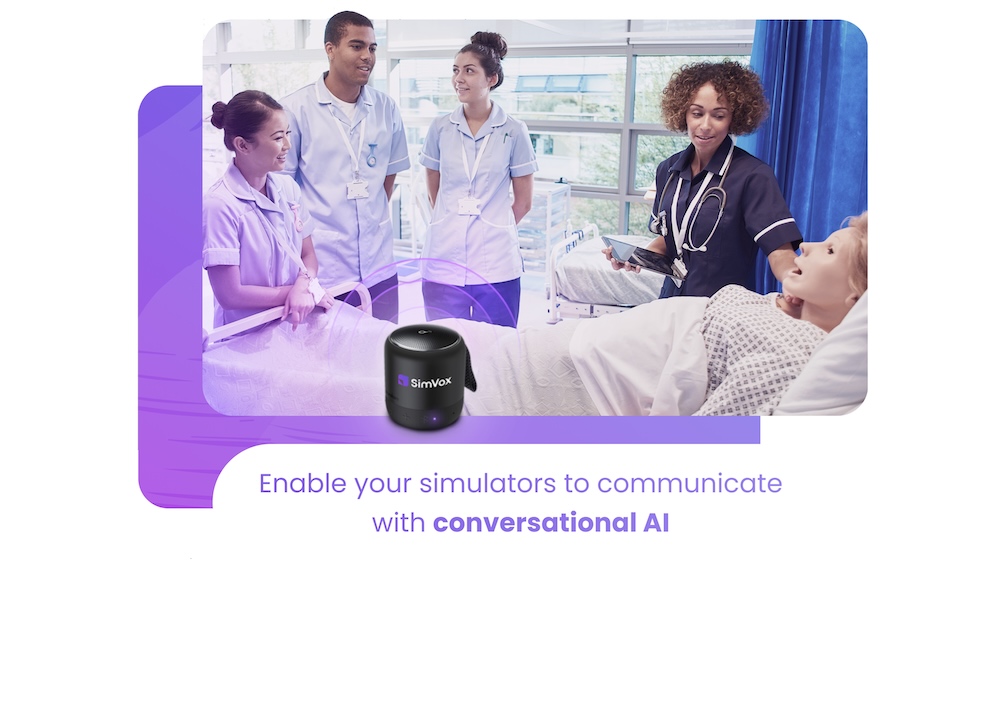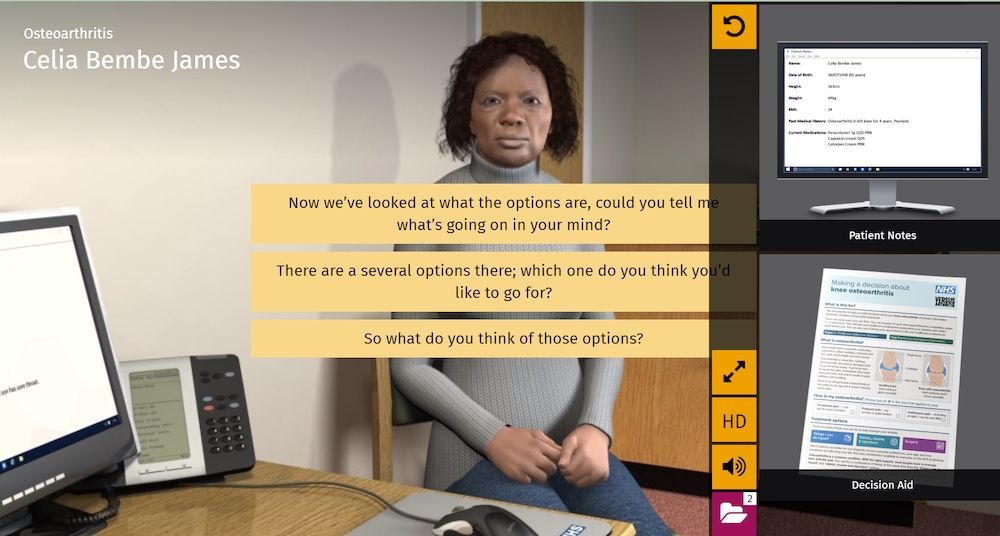The Winter Institute for Simulation, Education, and Research (WISER) began using Simulation Information Management Systems (SIMS) to assist with day-to-day operations management in 2002. Four years later, SIMS 2.0 was revealed, expanding the scope of support provided by this web-based system to include scheduling, curricula delivery and reporting to clinical simulation programs throughout the world. Following 15 years of user feedback from healthcare simulation centers across the country, including MD Anderson, Sentara, UCLA, Simtiki, Kaiser Permanente, Johns Hopkins, the Gordon Center and Medisys, WISER has launched SIMS 3.0 – a thorough rewrite of the existing management system.
“We have completely redesigned the underlying database. The programming language, entire codebase and frameworks are completely different,” said John Lutz, the director of information technology and co-director of Research at WISER.
All along, the goal of SIMS has been to ease the administrative burden of running a healthcare simulation center by streamlining the entire management process into a one-stop simulation support system. Now, from a two-room center to larger programs spread over multiple sites (and even time zones), SIMS can provide support services to centers of all sizes and scope. One of the greatest benefits of SIMS is that the solution is all-inclusive, meaning that users do not need separate programs or applications – all of the necessary tools are all contained within SIMS. Therefore, users can see all available resources, send emails, go back into classes and events that have already happened and see how the rooms and resources were used in the past.
“Seeing all available resources allows the administrator to quickly determine if another event can be added to the calendar. Sending automated emails relieves students, instructors and operations personnel of upcoming events or tasks they need to accomplish,” added Lutz. “Viewing and reporting on past events allows them to have a clear view of past activity, and allows them to judge the effort needed for future events.”
In a world where technology is constantly changing, SIMS 3.0 provides users with the ability to tailor their SIMS platform to their sim center’s individual needs. Further, they can restrict or grant access to staff members depending on what is needed of them. Administrators are in complete control and can create or modify roles in the system and give those roles the exact permissions they need. This is the case whether permissions are needed across the entire site, for each course or are specific to an event.
“There are dozens of permissions in the new system, including requesting events be scheduled, granting schedule request, adding users to events, viewing curriculum, adding and updating user accounts, etc.,” said Lutz, who works with faculty to develop various research programs and assists in research design, data collection and analysis at WISER.
With SIMS 3.0, there is increased functionality and transparency in the ability to create comments within the scheduling program. This is a function that will save healthcare simulation administrators time by reducing the need to send multiple emails to track or relay specific information. Additionally, the ability to create custom templates when scheduling classes will also save time. This can help alleviate the problem of “overbooking” the addition of a room or piece of equipment. For example, if an administrator needs a specific piece of equipment for a particular class, they won’t find themselves in an accidental overbooking situation.
“Templates do help with [overbooking], but their real utility is the ability to schedule complex events easily. You can have dozens of resources, each with their own setup, teardown and scheduled times added to the calendar with a simple selection from a menu,” Lutz said. “This will save schedulers significant time and ensure that they don’t forget any resources needed.”
According to Lutz, the templates can be created from existing events or built from scratch. The user will specify times, notes and other specifics for the event. For resources, they specify the time needed, and can request either a specific resource or a group of similar resources. If the grouped resource is selected, when the event is requested or scheduled, the system will schedule the first available out of that group, so the scheduler doesn’t need to spend time researching availability.
Another benefit of the new SIMS 3.0 is that the program is aesthetically improved and more mobile-friendly as well. Most day to day tasks can be easily completed on a tablet or mobile phone. Demonstrating the effectiveness of this management tool, SIMS 3.0 beta-testing proved to be quite a success, with very positive feedback from those involved, according to WISER.
“Overall, the SIMS 3.0 is much more easy to use and understand, much more flexible to adapt to different simulation programs and is much more mobile-friendly,” Lutz said.
More About WISER
Established in 1994, the Winter Institute for Simulation, Education and Research (WISER) is a world class multidisciplinary training, development, and research facility. WISER is a critical part of the infrastructure of the University of Pittsburgh and the UPMC Health System. WISER’s mission is to create education and training programs, along with patient safety solutions including those utilizing clinical simulation-based modalities to provide a safer environment for patients of the UPMC Health System and its affiliates.
WISER is dedicated to the advancement of healthcare simulation and education to improve patient safety, education, mentorship, systems design and research to enhance the high-quality delivery of healthcare. This mission fulfills itself in academic curricula, hospital-based training initiatives, research, advanced instructional technology, and the development of innovative healthcare simulation programs. WISER is a world leader in healthcare simulation. WISER has trained and informed tens of thousands of future and practicing healthcare professionals in a variety of clinical simulation settings.
Using the web-based Simulation Information Management System (SIMS) – developed at WISER – staff, faculty, and students can interact across the globe. SIMS provides an operational and educational backbone, efficiently scheduling classes, delivering cutting edge curriculum, and collecting and reporting on vital data that allows WISER to be a premier healthcare simulation education program. By quickly implementing this learning in the care of actual patients at UPMC hospitals, and by sharing results with the healthcare community through published articles, WISER improves patient safety in the Pittsburgh area and around the world.
Since receiving accreditation from the Society for Simulation in Healthcare (SSH) for a fellowship program, WISER is now one of only a few centers in the world accredited by SSH in all five specialty areas. WISER’s main campus is a 20,000 sq. foot facility – additionally, WISER operates eight Satellite Centers at UPMC hospitals across Western Pennsylvania. WISER is directed by Dr. Paul Phrampus, MD, who is also a professor in the Departments of Emergency Medicine and Anesthesiology at the University of Pittsburgh School of Medicine.






